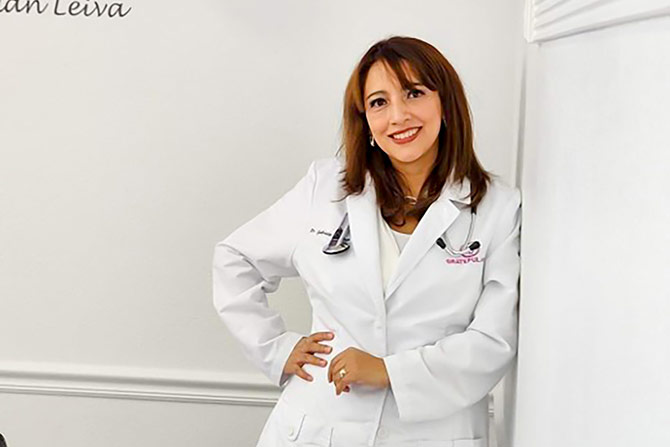A Bit About Dr. Walsman
I grew up in Quito, Ecuador, as the only daughter among two siblings. My mother, an entrepreneur, and my father, a physician, have been my greatest mentors, guiding me throughout my journey to becoming a physician in the United States.
I moved to the U.S. at the age of 25 and met my husband, Wesley, in Washington, D.C., where we lived for seven years before I was accepted into a residency program in McAllen, Texas. My first two children were born in Texas, and my youngest, Isaac, was born in Utah. My children, whose ages range from 18 months to 12 years, are my constant source of motivation and joy, and they keep me grounded and active. Motherhood is a journey in itself, and I am continually learning how to balance my professional and personal life.
I am practicing as a solo practitioner at Grateful Direct Primary Care, a clinic located in West Jordan, Utah. My goal is to provide quality medical and culturally sensitive care.
Outside of my clinic, I am deeply committed to humanitarian efforts, serving on the board of the Leal Foundation, a nonprofit organization dedicated to providing medical missions in rural areas of Ecuador. This work allows me to give back to underserved communities and provide them with much-needed healthcare.
When I’m not working, I cherish spending time with my family, attending church, exploring the outdoors, and traveling. I also have a passion for Ecuadorian folkloric dance, which helps me stay connected to my roots. Promoting wellness is a priority for both my patients and myself, and I strive to maintain a balanced and active lifestyle.
The Journey to Becoming a Physician
From a young age, I knew I wanted to pursue medicine. At just 11 years old, I would accompany my father, a cardiothoracic surgeon, to the hospital, where he introduced me to his patients. One experience that solidified my calling was when an 8-year-old patient in recovery, whom my father had just operated on, kissed my hand in gratitude. That moment deeply impacted me and affirmed my desire to heal future patients.
I also fondly remember pretending to be a doctor in my father’s home office, where I would use his prescription pad to “prescribe” imaginary medications to my playmates.
I completed my medical training at the Central University of Quito, Ecuador, and, as an international medical graduate, I pursued my dream of practicing medicine in the United States. I passed the necessary board exams after studying at Kaplan Medical Institute. During this time, I worked as a medical assistant, Spanish medical interpreter, and volunteered at various hospitals in the Washington, D.C., area to gain experience and immerse myself in the U.S. healthcare system.
I completed my residency in family medicine at the McAllen Family Medicine Program and subsequently worked as an employed physician for six years. For the past three years, I have been running my own direct primary care clinic in West Jordan, Utah. I take great pride in providing comprehensive care and building long‑term relationships with my patients, which is one of the most rewarding aspects of family medicine.
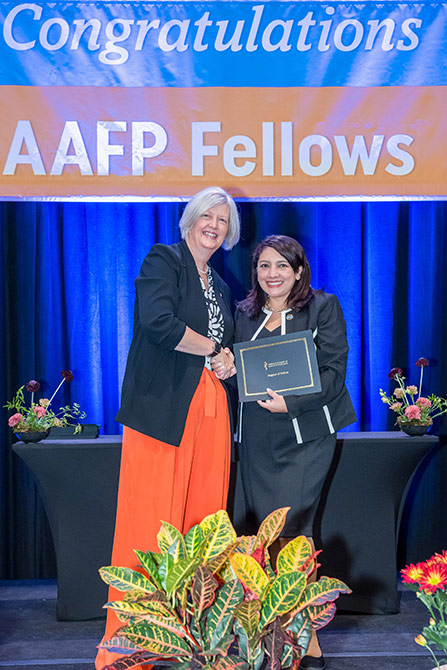
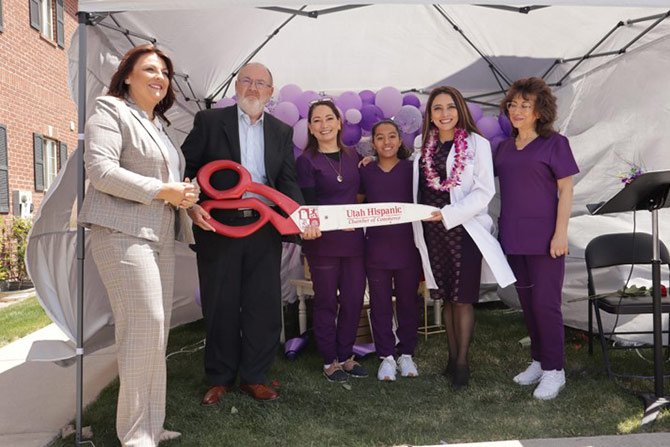
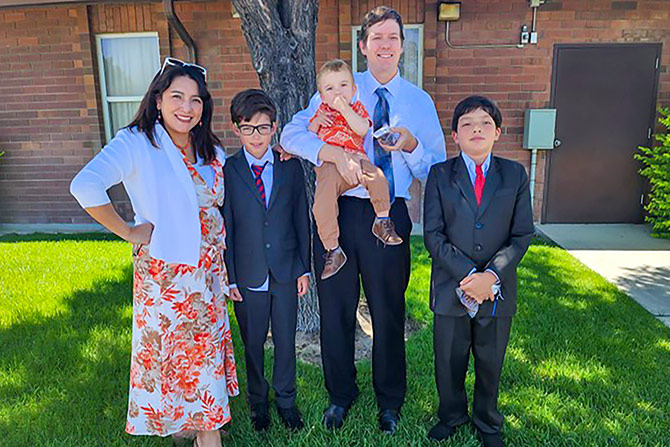
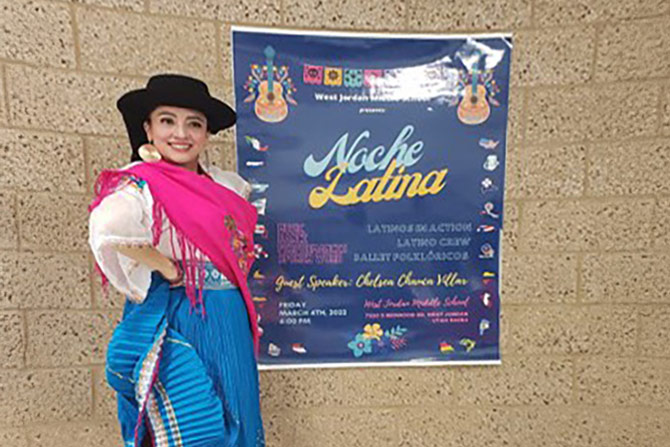
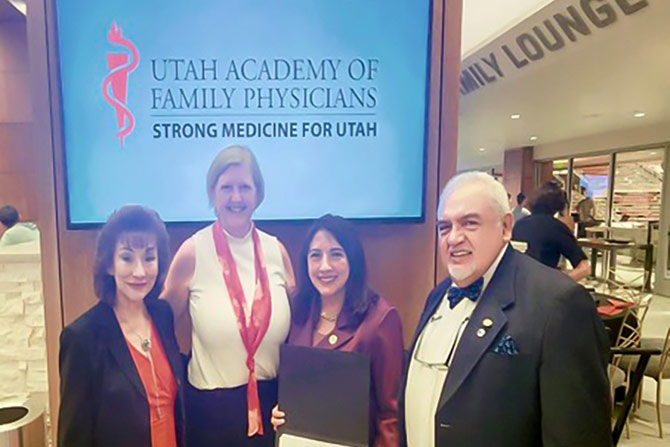
Choosing Family Medicine
Choosing family medicine was a very intentional decision for me, shaped by my desire to provide holistic care and build lasting relationships with my patients. During my training, I was drawn to the diversity of cases that family medicine offers, allowing me to treat patients across all stages of life, from pediatrics to geriatrics. The variety and continuity of care, coupled with the ability to manage both acute and chronic conditions, were aspects that deeply resonated with me.
While I considered other specialties, such as cardiology and internal medicine, family medicine stood out because it allowed me to engage with entire families, providing comprehensive care for each member. I also appreciated the opportunity to practice preventive medicine and have an impact on community health. Ultimately, I chose family medicine because it allows me to treat not just the illness, but the whole person, while fostering long-term relationships that are truly rewarding.
Practice Specifics
Since completing residency, my career path has been dedicated to serving the community in various healthcare settings. I initially worked at the VA in Harlingen, Texas, providing care to veterans, which was a deeply enriching experience. Afterward, I transitioned into urgent care and occupational medicine, where I addressed a wide range of acute and work-related health issues.
For four years, I also worked at a community health center, which was incredibly rewarding. This role allowed me to make a significant impact on underserved populations, but it eventually became overwhelming due to the constantly growing patient panel size, making it difficult to manage effectively.
During the COVID-19 pandemic, I experienced burnout from the intense demands of healthcare work. This led me to reassess my career trajectory and ultimately decide to establish my own practice. The decision to go independent was driven by the desire for a better balance between my professional responsibilities and personal life. Direct primary care has provided me with the flexibility and autonomy to practice medicine in a way that aligns with my values, allowing for more meaningful interactions with patients and a focus on holistic care.
Future of Family Medicine
To ensure that there are enough family physicians to meet the growing demand, both nationally and at the state level, we must address the challenges in medical education, such as the high-cost deterring students from pursuing lower-paying specialties like family medicine, requires more scholarships and loan repayment programs. Moreover, increasing family medicine residency slots and ensuring they are well-funded can counteract residency training constraints that favor other specialties. Enhancing exposure to primary care settings early in medical education can spark interest in family medicine. Encouraging the pursuit of family medicine through mentorship from established physicians can inspire students, while emphasizing the potential for a balanced lifestyle and showcasing the profound impact family physicians have on their patients’ lives can attract those motivated by meaningful patient-centered care. By addressing these challenges and highlighting the benefits, we can foster a healthcare system that values and supports the essential role of family physicians in providing comprehensive, accessible care to all.



